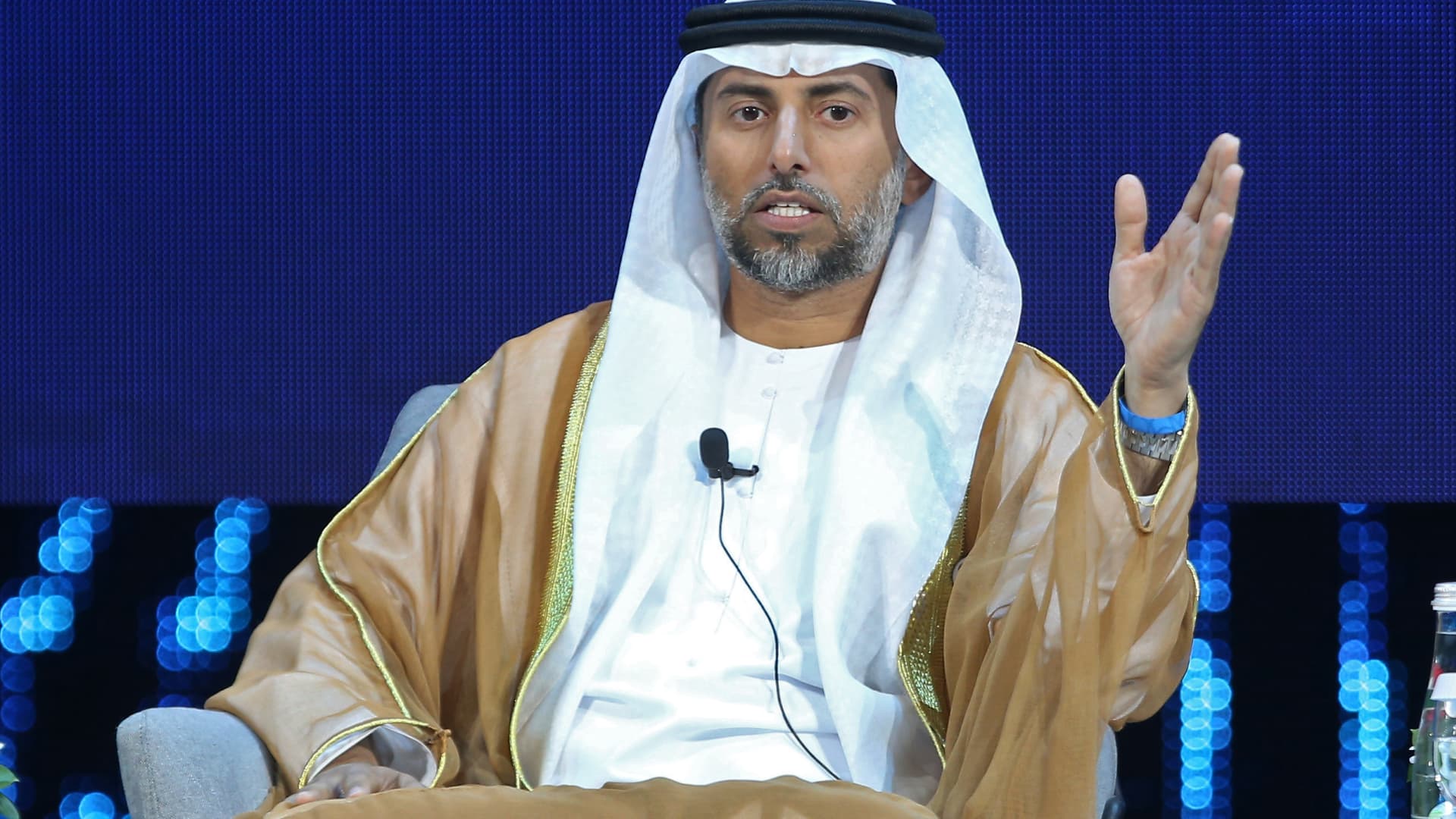The United Arab Emirates’ energy and infrastructure minister has insisted that Russia will always be a part of OPEC+ even as governments across the globe shun the oil exporter over its war in Ukraine.
Speaking to CNBC on Monday, Suhail Al Mazrouei, a former president of the oil alliance, said no other country could match Russia’s energy output and argued politics should not distract from the group’s efforts to manage energy markets.
“Always, Russia is going to be part of that group and we need to respect them,” he told Hadley Gamble at the Atlantic Council’s sixth annual Global Energy Forum in Dubai.
“OPEC+, when they speak to us, they need to speak to us including Russia,” he said, referring to the group’s negotiations with energy importers.
The U.S., Europe and Japan have called on oil-producing nations to do more to tackle record-high prices amid the war in Ukraine and ongoing supply shortages.
But, Al Mazrouei said Russian oil would play a vital role in achieving that. The comments come as Western allies express concern that Russian energy imports are indirectly topping up President Vladimir Putin’s war chest with oil and gas revenue.
“Who can replace Russia today? I cannot think of a country that can in a year, two, three, four or even 10 years replace 10 million barrels. It’s not realistic,” he said.
OPEC+, led by Saudi Arabia and Russia, has the capacity to increase oil output and bring down crude prices, which have jumped to over $100 a barrel.
They are doing something but expecting the opposite reaction, and it’s not going to happen.Suhail Al MazroueiUAE Minister of Energy and Infrastructure
“We are in agreement with their target or their objective of trying to calm the market and balance the market,” Al Mazrouei said. “But you don’t do it this way. You don’t do it by putting sanctions on a hydrocarbon that you cannot replace — unless you want the prices to go high.”
“They are doing something but expecting the opposite reaction, and it’s not going to happen.”
OPEC and non-OPEC ministers are slated to meet on Thursday via videoconference to determine the next phase of production policy.
It comes amid renewed pressure for the influential alliance to boost oil supplies after G-7 energy ministers said OPEC “has a key role to play” in easing market tensions.
“We call on oil and gas producing countries to act in a responsible manner and to examine their ability to increase deliveries to international markets particularly where production is not meeting full capacity noting that OPEC has a key role to play,” G-7 energy ministers said in a joint statement on March 10.
“This will help to ease tensions and note with appreciation announcements already made to this end.”
The G-7 group of major economies is comprised of the U.K., U.S., Canada, Japan, Germany, France and Italy.
OPEC+ is in the process of unwinding record supply cuts of roughly 10 million barrels per day. The historic production cut was put in place in April 2020 to help the energy market recover after the coronavirus pandemic cratered demand for crude.
Most recently, the group’s been raising output by 400,000 barrels per day each month. The energy alliance has stayed the course despite sustained pressure from top consumers to pump more to cool prices and aid the economic recovery.
OPEC alone accounts for around 40% of the world’s oil supply.
